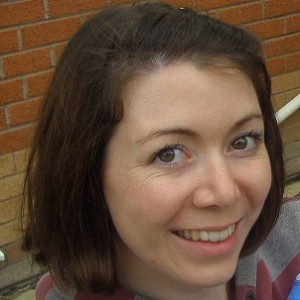Michelle Leach: Science at the BBC
| 16 July, 2015 | Adie Chan |
|

|

With this in mind, I undertook a 4 week placement at the BBC. I was excited to see how the BBC, one of the largest media outlets in the world, perceived science. I was placed with the Science and Development department. The team is responsible for generating all science related documentaries (think dinosaurs, volcanoes, diseases) that air on BBC1, BBC2 and BBC4. Prior to my first day, I was quite nervous. I had no idea what to expect, having spent most of my scientific career working at a laboratory bench, just me and my pipettes, quietly unravelling some of the mysteries of human disease.
During my 4 weeks I was involved in at least one brain storming session a week. In these sessions a list of current affairs, future movies, and top rated past documentaries was often passed around. With the passing of the ‘future movie’ list I was confused, what could Star Wars and Jurassic World have to do with science? I learned that, for example, with the making of Jurassic Park, everyone wanted to know about dinosaurs, consequently giving the BBC an area in which to focus documentaries.
I was also surprised to find that the most watched documentaries were those that involved filming in extremely remote locations. People want to see what they may never have the opportunity to see in their lives. As I threw ideas on the table, I was often told “too boring”, “already been done” or the one that shocked me the most was “too much doom and gloom”. With climate change, food shortages and a rise in antibiotic resistance, I wanted to highlight these issues and educate the public, but based on BBC ratings, these documentaries detract viewers! So there is a constant battle to produce documentaries that are interesting, current and educational with minimal “doom and gloom”.
Aside from brain storming, the day-to-day work was very similar to that of a scientist. You have an idea, you do some research, and you write a proposal. That proposal would get sent to the channel controller, similar to a grants board. Feedback was given, and the proposal was either accepted with some necessary changes or outright rejected. Many more ideas are rejected than accepted, which as scientists, we can all empathise with.
Working at the BBC was a fantastic experience. It has broadened my thoughts on public dissemination and how the general public feels about science. Current affairs, media and even our own personal lives affects what we want to know, and utilising this information will allow us to communicate our science to a broad audience. As for me, I have been told that if there is an outbreak in Candida infections, I will get a spot on prime time TV.
Watch the video below of Michelle Leach talking to F1000 about her own research, or read Michelle’s F1000Prime recommendations with Faculty Member Leah Cowen

|

